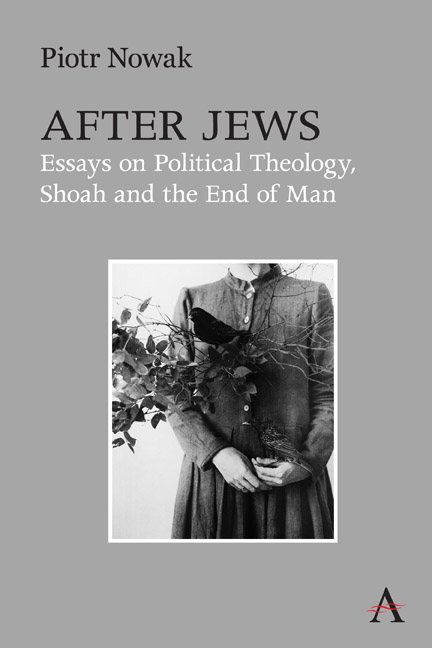Book contents
- Frontmatter
- Contents
- Preface
- Chapter 1 The Chosen Ones
- Chapter 2 The Secret of the Scapegoat
- Chapter 3 Making a Jew into a Christian
- Chapter 4 There Should Be Time No Longer
- Chapter 5 To Look Upon His Face and Yet Not Die
- Chapter 6 Ex oriente lux?
- Chapter 7 Pilloried by Necessity
- Chapter 8 German Rubble
- Chapter 9 Long Live!
- Chapter 10 The Living against the Dead
- Chapter 11 The Child of War
- Chapter 12 Plenty Coups and the End of the World
- Chapter 13 They Refugees
- Chapter 14 The Remainder of Christianity
- Bibliography
- Index of Persons
Chapter 10 - The Living against the Dead
Published online by Cambridge University Press: 13 May 2022
- Frontmatter
- Contents
- Preface
- Chapter 1 The Chosen Ones
- Chapter 2 The Secret of the Scapegoat
- Chapter 3 Making a Jew into a Christian
- Chapter 4 There Should Be Time No Longer
- Chapter 5 To Look Upon His Face and Yet Not Die
- Chapter 6 Ex oriente lux?
- Chapter 7 Pilloried by Necessity
- Chapter 8 German Rubble
- Chapter 9 Long Live!
- Chapter 10 The Living against the Dead
- Chapter 11 The Child of War
- Chapter 12 Plenty Coups and the End of the World
- Chapter 13 They Refugees
- Chapter 14 The Remainder of Christianity
- Bibliography
- Index of Persons
Summary
Miłosz is like the world and, just like the world, he has a lot of secrets. One of them is his attitude to those he lost in the war—his colleagues, friends, peers. I want to tear it from him; I want to interview his shadow about the rules that determined his relationships. What was he ashamed of ? What was he trying to escape? Who did he protect? Why writing about the living he failed to mention the dead? Why did he shift attention away from his own person? What hurt him? And why so much?
The Religious Apprehension of the World
Haunted by fears and vague metaphysical intuitions, imagination today is subject to irreversible erosion. God is not thought of otherwise than in quotation marks, and so is used mainly as a rhetorical figure expressing what is not completely apprehensible or possible to encompass. In such a world, poetry, too, struggles with the loss of meaning. It cannot provide convincing answers to the questions that life poses to it, thus becoming heavy, incomprehensible, unable to exceed itself, with the result that it eats its own tail. This is why it must be simplified at all costs, first by giving up any unnecessary formal complexities—one should learn about a pine tree from the tree itself. In this respect, certain patterns can be found in the poetry of the East, except that it generally remains deaf to the questions that have puzzled the Old Continent for thousands of years: the difference between good and evil, God and creation, freedom and necessity, mind and body. “I do not hide the fact,” as Miłosz writes in one of his essays,
that I seek in poems a revelation of reality, of what is known in Greek as epifaneia. This word used to mean, in the first instance, manifestation, the appearance of the Divinity among mortals, and also our recognition of the divine in an ordinary, familiar form, as for example, in the form of a man. Epiphany thus interrupts the everyday flow of time and enters as one privileged moment when we intuitively grasp deeper, more essential reality hidden in things or persons.
- Type
- Chapter
- Information
- After JewsEssays on Political Theology, Shoah and the End of Man, pp. 133 - 142Publisher: Anthem PressPrint publication year: 2022



